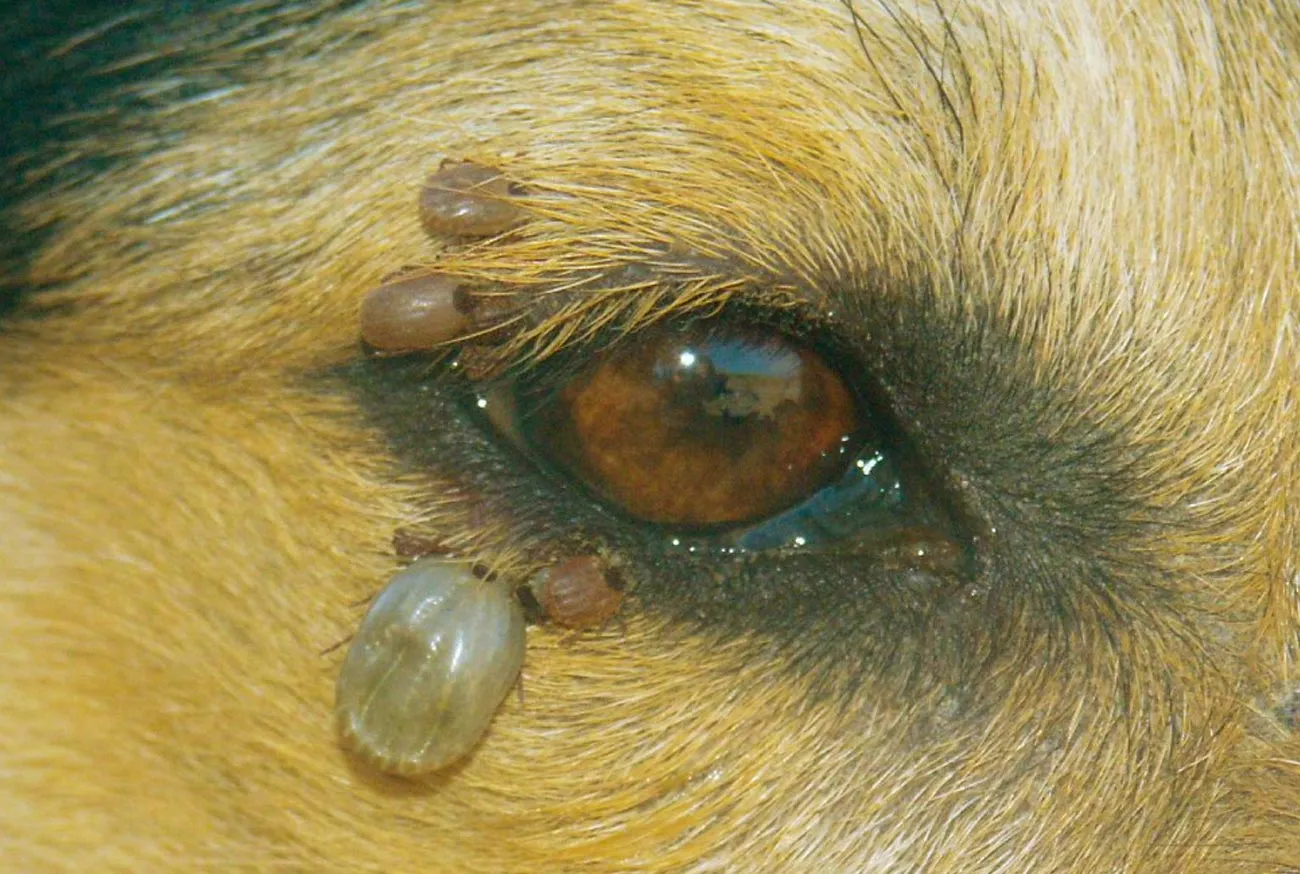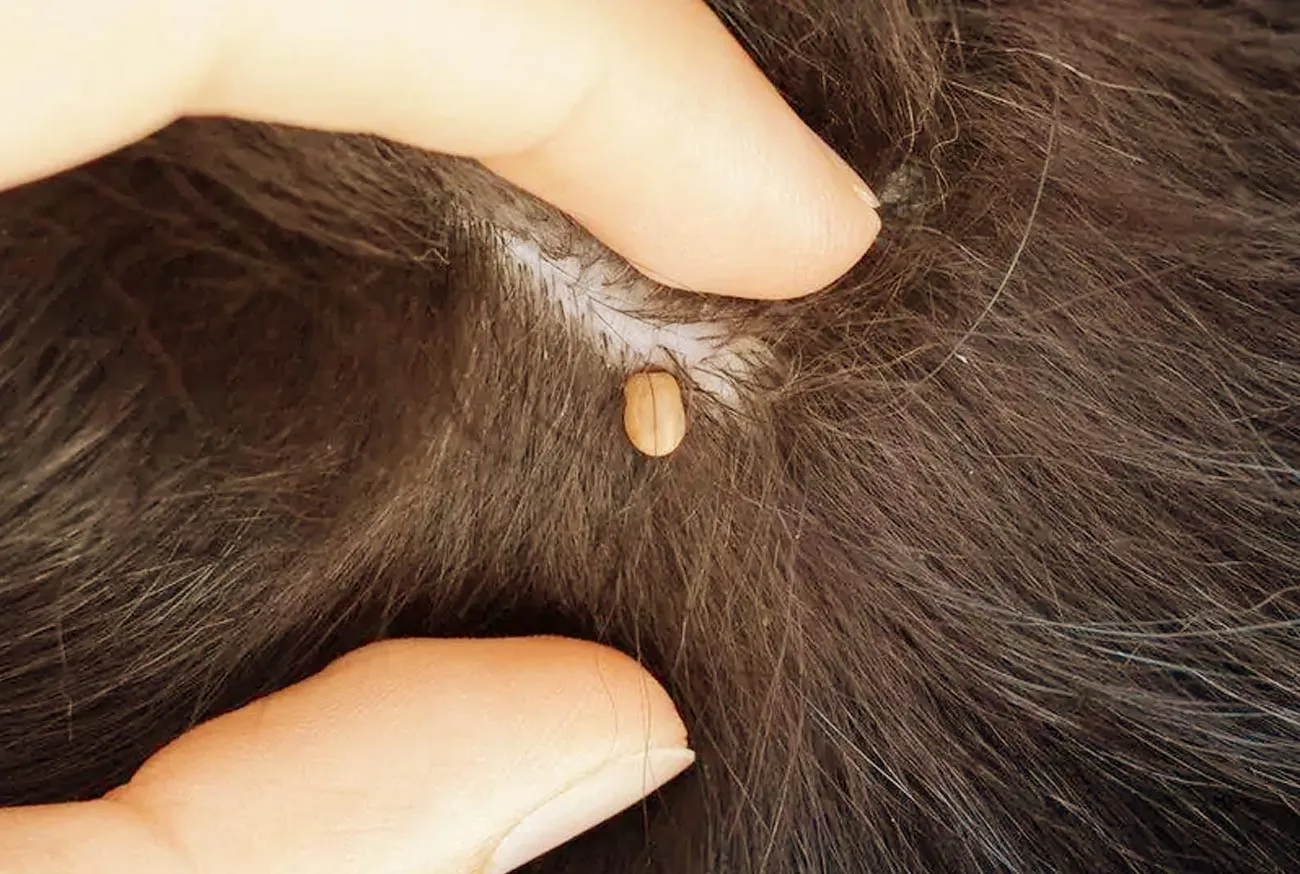
Tick in dogs: how to protect your pet and prevent serious diseases
Ticks may be small, but the effects they have on our four-legged friends are huge. Did you know that a simple tick bite can put your dog’s health at risk by transmitting serious and even fatal diseases? Many pet owners are unaware of the devastating impact these parasites can have and how to avoid them. In this article, you will learn how to identify the signs, prevent infestations, and take care of your pet’s health in a practical and efficient way.
What is a tick and how does it affect a dog’s body
A tick is an external parasite that feeds on the host’s blood to survive. When it bites the dog, it injects saliva containing substances that prevent blood clotting, making feeding easier. The problem is not just blood loss, but also the serious diseases it can transmit, such as babesiosis and ehrlichiosis.
These parasites are found in lawns, parks, forests, and even indoors, especially in poorly cleaned environments. Additionally, they reproduce rapidly, turning a small infestation into a much bigger problem in just a few days.
Main diseases transmitted by ticks
A tick bite can be the starting point for serious diseases. Let’s take a closer look at the main ones:
- Babesiosis: also known as “tick fever,” this disease is caused by protozoa that attack red blood cells, resulting in severe anemia. Symptoms include fever, lethargy, loss of appetite, and yellowing of the mucous membranes.
- Ehrlichiosis: caused by bacteria of the Ehrlichia genus, this disease attacks white blood cells, compromising the dog’s immune system. The most common signs include fever, bleeding, weight loss, and difficulty breathing.
- Lyme disease: although less common in Brazil, this illness can cause fever, joint pain, and even heart problems.

How to identify a tick infestation
Identifying the presence of ticks on your dog is essential for acting quickly. Pay close attention to areas like the ears, neck, armpits, and between the toes. These are the regions that ticks prefer.
Additionally, watch for changes in your pet’s behavior, such as excessive itching, skin irritation, wounds, or scabs. In more severe cases, you may notice signs of lethargy, loss of appetite, and even fever.
Prevention: How to protect your dog from ticks
Prevention is the best way to avoid the problems caused by ticks. Here are some practical tips you can follow:
- Use antiparasitic treatments regularly: options like collars, pipettes, and tablets are effective in preventing and controlling ticks. Consult your veterinarian to choose the best product for your dog.
- Clean the environment: keep your home clean and, if possible, apply specific products to eliminate ticks from floors and carpets.
- Avoid risky areas: places with tall vegetation or poor maintenance may harbor many ticks. If you take your dog to a park, check it carefully when you return home.
- Inspect your dog regularly: perform a visual inspection of your pet after walks, especially in areas where ticks are common.
What to do if your dog has ticks
Found a tick on your dog? Stay calm! Remove it carefully using tweezers, avoiding squeezing the tick’s body, as this can release harmful substances into your dog’s system.
Here’s the step-by-step guide:
- Hold the tick as close to the dog’s skin as possible.
- Pull slowly, without twisting, until the parasite is completely removed.
- Dispose of the tick in a container with alcohol to ensure it is dead.
After removal, check the bite site. If there is irritation, swelling, or signs of infection, see a veterinarian immediately.
Myths and truths about ticks
When it comes to ticks, many myths are circulating. Let’s clarify some of them:
- “Ticks only appear in the summer”: Myth! Although they are more active in warm climates, they can survive year-round in protected environments.
- “My indoor dog is safe”: Myth! Ticks can be brought in by other animals or even on people’s clothing.
- “A tick bite always causes disease”: Myth! Not all ticks are infected, but the risk is always present, which is why prevention is crucial.
The emotional impact of ticks on dogs and owners
In addition to health problems, a tick infestation can cause a lot of stress for owners and discomfort for the dogs. Seeing your four-legged friend suffer can be a distressing experience, but with the right care, it’s possible to turn the situation around and prevent future issues.
Natural solutions to complement prevention
If you prefer natural alternatives, there are a few options that can help:
- Neem oil: has repellent properties and can be used in small quantities diluted in water.
- Apple cider vinegar: adding a teaspoon to your dog’s water can help repel ticks, but consult your vet first.
- Garden maintenance: plants like citronella and rosemary can help keep ticks away from the yard.
Your dog’s health is in your hands
Ticks may seem like a small problem, but their effects are significant and dangerous. Taking care of your pet means investing in prevention, attention, and affection. By following the tips in this article, you will not only be protecting your dog’s health but also your peace of mind.
Share this article with other pet owners! Information is the best weapon against ticks and their consequences. Together, we can ensure a healthier and happier life for our best friends.



